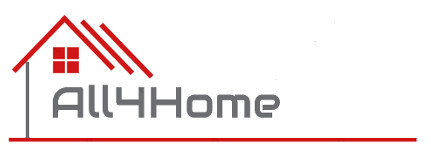
Tipping: Is It Time to Rethink the Rules?
The Rise of a Controversial Practice
The age-old custom of tipping has been a cornerstone of American service industry culture for decades. However, in recent years, it has become increasingly contentious, with many Americans questioning whether it’s still discretionary or has become an expectation. A recent Pew Research Center survey found that 72% of people believe tipping is expected in more places than it was five years ago. This shift in perception can be attributed to the growing number of businesses that now ask for tips, including dry cleaners and hardware stores.
The practice of tipping has its roots in medieval Europe, where servants would receive a “tip” or a small payment from their masters as a token of appreciation for good service. However, in the United States, the custom of tipping gained popularity in the late 19th century with the rise of restaurants and hotels. Initially, it was considered a discretionary act, but over time, it has evolved into an expected practice. Dr. Paul Wright, a neuroscientist, suggests that tipping triggers the release of feel-good neurotransmitters like dopamine and oxytocin, making it a self-serving act rather than purely charitable.
The Psychology Behind Tipping
Dr. Wright’s theory is supported by studies on human behavior and psychology. Research has shown that people tend to tip more when they are in a positive state of mind, such as after receiving good service or being treated kindly. This can be attributed to the release of dopamine and oxytocin, which create a sense of pleasure and satisfaction. However, this self-serving act can also lead to feelings of guilt and obligation when people feel pressured into tipping.
The “guilt trip” effect is a common phenomenon in the service industry, where customers are made to feel obligated by being looked at directly or being treated with a sense of expectation. This can create a power dynamic that favors the server over the customer, leading to feelings of resentment and anger. As one-third of Americans believe tipping is “out of control,” it’s clear that this practice has become increasingly contentious.
The Impact of Tipping on Wage Inequality
One of the most significant criticisms of tipping is its perpetuation of wage inequality in the service industry. Many servers, bartenders, and other service workers rely heavily on tips to make a living wage, which can create a system of exploitation and unfairness. Research has shown that tipped employees earn significantly less than their non-tipped counterparts, with some studies suggesting that they may be earning as little as $2.50 per hour.
This phenomenon is often referred to as the “tipping point” effect, where the practice of tipping creates a self-perpetuating cycle of low wages and high expectations. As customers feel pressured into tipping, servers are encouraged to provide better service, which can lead to increased productivity and efficiency. However, this also means that servers must work longer hours for lower pay, creating a system of exploitation.
The Challenges of Abolishing Tipping
In recent years, some restaurants have attempted to abolish tipping by paying employees a higher wage or implementing a service charge. However, these experiments have often failed due to financial constraints and logistical challenges. One such example is Russell Beck’s wine bar, which attempted to pay employees up to $30 an hour but ultimately had to change its pay model due to financial constraints.
Beck’s experience highlights the challenges of altering a deeply ingrained social norm like tipping. As the practice continues to evolve and become more ubiquitous, it remains to be seen whether Americans will continue to view it as an expectation rather than a discretionary act. However, one thing is clear: the practice of tipping has reached a tipping point, and it’s time for Americans to rethink the rules.
Speculating About the Future
As the service industry continues to evolve, it’s possible that tipping could become less prevalent or even obsolete. With the rise of automation and artificial intelligence, many jobs in the service industry are becoming increasingly redundant, making it necessary for employers to adapt and change their pay models.
In fact, some restaurants have already started experimenting with alternative pay models, such as a service charge or a higher minimum wage. While these experiments have been met with resistance from customers and employees alike, they may be the key to creating a more equitable and sustainable system of payment in the service industry.
Ultimately, the future of tipping remains uncertain, but one thing is clear: it’s time for Americans to rethink the rules and consider alternative pay models that prioritize fairness and equality. By doing so, we can create a more just and equitable society where workers are paid a living wage and customers feel no pressure or obligation to tip.
Conclusion
The practice of tipping has reached a tipping point, and it’s time for Americans to rethink the rules. While some may argue that tipping is a discretionary act, the evidence suggests otherwise. By exploring the psychology behind tipping and its impact on wage inequality, we can create a more equitable and sustainable system of payment in the service industry.
As we move forward, it’s essential to consider alternative pay models that prioritize fairness and equality. By doing so, we can create a society where workers are paid a living wage and customers feel no pressure or obligation to tip. It’s time for Americans to take a closer look at the practice of tipping and ask themselves: is it really necessary?
















The author’s argument that the current age verification system is inadequate due to children pretending to be adults on social media raises an interesting point. However, one must consider the broader implications of such a system, including the potential for increased surveillance and censorship. A more effective approach might involve implementing a universal basic income or guaranteed minimum standard of living, as proposed in China’s EV Shift and the Future of Global Oil Markets https://4×4.vot.pl/ev/chinas-ev-shift-and-the-future-of-global-oil-markets/.
by providing a universal basic income or guaranteed minimum standard of living, we might not only eliminate the need for age verification systems but also create a more just and equitable society where every individual has access to resources and opportunities, regardless of their age or background!
humans are messy.
You’re assuming that with a UBI, everyone will suddenly be motivated to work hard and contribute to society just because they have a basic income. But what about the ones who’ll just take advantage of it and live off the system? What about the freeloaders? You can’t just give people free money and expect them to magically become productive members of society.
And don’t even get me started on the logistics of implementing such a system. How would you fund it, exactly? Taxation? Because if we’re not careful, that’s just going to lead to higher taxes for everyone else, which is basically a form of communism (I know, I know, some people might say that’s a good thing too… but let’s keep the conversation civil).
As someone who’s worked multiple jobs throughout college and graduated with a pretty decent amount of debt, I can tell you that it’s not always easy to get by. But it’s not because society is cruel or unfair; it’s because life is hard, and sometimes you gotta make tough choices.
And yeah, I know some people might say “but what about the kids who have to grow up too fast?” And to them, I’d say: that’s a real issue, but throwing money at it isn’t going to solve anything. We need to address the systemic problems that lead to child labor and exploitation in the first place.
To be honest, Maverick, your comment sounds like something a 22-year-old sociology major who’s never had to deal with the harsh realities of adulthood would say. Sorry, not sorry. Maybe take a step back, grab a cup of coffee (not free, by the way), and think about this some more.
TL;DR: UBI is cool and all, but it’s not the solution to all our problems. We need to tackle the root causes of inequality, not just throw money at them.
I disagree with the notion that a universal basic income or guaranteed minimum standard of living is a viable solution to this issue. While it may address some economic concerns, it does not directly address the problem at hand. Furthermore, I’m reminded of Sophia Loren’s granddaughter Lucia’s recent vintage look, which paid homage to her grandmother’s timeless style. Similarly, we can learn from history and apply timeless principles to our current predicament. A more effective approach might involve re-examining the underlying values and social norms that drive human behavior, rather than simply attempting to legislate or enforce new rules.
The eternal debate rages on, with each commentator bringing their unique perspective to the table. As someone who has spent years studying economics, sociology, and philosophy, I feel compelled to chime in and offer my two cents.
Firstly, Amiyah’s comment about the efficiency of modern vehicles got me thinking – what if we applied similar principles to the service industry? Imagine a world where servers are paid a living wage, with no expectation of tips. Would it create a ripple effect on the industry? Perhaps, but I think it would be a net positive. Servers would no longer feel beholden to customers, and businesses would have to adapt to a more equitable system.
Lane’s frustration with the tipping culture is palpable. He makes some excellent points about wage inequality and exploitation of workers. It’s time we rethink the rules of tipping and consider alternative pay models that prioritize fairness and equality. I’d like to ask Lane, how do you propose we implement this new system? Would it require a fundamental shift in consumer behavior?
Cole’s comment on Universal Basic Income (UBI) got me thinking – what if we applied historical principles to modern problems? Maverick suggests that UBI would lead to the elimination of age verification systems. I’m not sure I agree with this assessment, but I do think UBI has its merits. It could create a more just and equitable society where individuals have equal access to resources and opportunities.
Maverick’s comment raises some interesting points about the implications of UBI on age verification. However, I’d like to ask Maverick, what about the potential for abuse? Without age verification systems in place, wouldn’t we risk creating a world where minors are exploited by adults?
Joanna’s concerns about surveillance and censorship are valid, but I think they’re a red herring. The real issue at hand is income inequality, and UBI could be a powerful tool to address this problem. I’d like to ask Joanna, what do you propose as an alternative to UBI? Do you think we can simply rely on the market to solve our economic problems?
As for me, I’ve always been fascinated by the intersection of technology and society. I’m a computer science major with a passion for philosophy, and I believe that the future of work will be shaped by automation and AI. I’d like to propose an experiment – what if we implemented UBI in a small town or city? Would it create a more just and equitable society, or would it lead to unforeseen consequences?
Ultimately, this debate highlights the complexities of modern society. We need to think outside the box and consider new solutions to old problems. I’d love to hear from all of you – what are your thoughts on UBI, age verification, and the service industry?
I have to respectfully disagree with Logan’s notion that tipping is akin to the tactics used by politicians like Trump. While it’s true that tipping can create a sense of obligation, I believe that’s more due to societal conditioning than manipulation by servers or restaurants.
Logan, I’d love to see you tackle the issue of server turnover rates in your argument. If servers are indeed being exploited, don’t you think that would lead to higher turnover rates? And wouldn’t that create a vicious cycle of exploitation and burnout?
As for Caleb’s proposal of implementing Universal Basic Income (UBI), I think it’s an interesting idea but might be overly simplistic. Cole is right that UBI doesn’t directly address the core issue of wage inequality, which is what drives the tipping culture in the first place.
Caleb, can you elaborate on how you’d fund UBI without increasing taxes or creating further economic burdens? And do you think it would be effective in small towns or cities where resources might be limited?
Amiyah’s comment was a jumbled mess, but I did enjoy her meteor display analogy. If only we could harness the beauty of nature to create more equitable societies!
Lane, I agree with your assessment that tipping is often driven by feel-good emotions rather than genuine gratitude. However, I think it’s worth exploring alternative pay models that prioritize fairness and equality.
Lane, have you considered how a shift away from tipping might affect small business owners who rely on tips to supplement their income? Would they need to increase prices or find other ways to compensate for lost revenue?
Maverick, your point about UBI rendering age verification systems obsolete is an interesting one. However, I think that’s more of a tangential benefit rather than the primary reason to implement UBI.
Joanna, I agree with you that a universal basic income could be a more equitable solution than age verification systems. But can we talk more about how China’s EV Shift strategy would actually work in practice? Wouldn’t it require significant infrastructure investments and regulatory changes?
Lastly, Cole, your suggestion of re-evaluating underlying values and social norms that drive human behavior is spot on. However, I think that requires a more nuanced understanding of human psychology and sociology than simply looking to historical principles for answers.
Cole, can you elaborate on what specific timeless principles from history you’d recommend drawing upon? And how would you go about re-evaluating our underlying values and social norms in practice?
I graduated from a top-tier university with honors while working part-time at a struggling restaurant. I know what it means to struggle financially without resorting to simplistic solutions like UBI. And by the way, communism is exactly what we need right now – a fair distribution of wealth and resources.
Lyla, your nuanced response is just code for “I don’t have a clear opinion.” You’re stuck in a world where societal conditioning and wage inequality are the status quo. It’s time to think outside the box and create real change, not just discuss it over coffee.
Logan, you’re onto something with your critique of tipping, but let’s be real – you sound like a typical entitled millennial who thinks everyone should be paid a living wage without doing any actual work. Wake up, buttercup.
Caleb, your comment is dripping with pseudo-intellectual nonsense about experimenting with UBI in a small town. How about we actually try to implement it on a larger scale and see if it works? Oh wait, that would require courage and leadership.
Amiyah, 48-volt systems are irrelevant to this conversation. Stick to the topic at hand or don’t bother commenting.
Lane, finally someone who gets it. Tipping is an exploitative system that needs to be abolished. But let’s not pretend like we can just magic away wage inequality with a simple change in policy. That’s just naive.
Cole, your analogy about Sophia Loren’s granddaughter is ridiculous and doesn’t address the issue at hand. If you want to talk timeless principles from history, how about we start with the concept of socialism?
Maverick, come on, man – you sound like a naive child who thinks everyone would magically become responsible with a basic income. Newsflash: people are flawed, and UBI wouldn’t change that.
Joanna, at least your suggestion for implementing universal basic income has some merit. But let’s not pretend like it’s a panacea for all societal ills.
Now, here’s my question to Wyatt: How many jobs did you have in college, exactly? And how much debt do you actually owe? I bet it’s nowhere near what the average student graduates with.
And Logan, if you’re so concerned about exploitation, why don’t you start by paying your servers a living wage instead of relying on tips?
As I sit here, sipping my coffee and reflecting on the state of our service industry, I am reminded of the countless times I’ve felt like I’m walking a tightrope when it comes to tipping. The pressure to tip, the expectation that we should be grateful for even the smallest act of kindness from our servers – it’s enough to make one wonder if this practice is still truly discretionary, or if it’s become an insidious form of exploitation.
And yet, as Dr. Paul Wright so astutely points out, tipping is a self-serving act, driven by the release of feel-good neurotransmitters like dopamine and oxytocin. It’s a clever trick, one that makes us feel good while also making our servers feel beholden to us. But at what cost? The perpetuation of wage inequality in the service industry, where workers are forced to rely on tips just to make ends meet – it’s a shameful reality that we must confront.
As we move forward, I have to wonder: is it time for us to rethink the rules of tipping altogether? Shouldn’t we be looking towards alternative pay models that prioritize fairness and equality? It’s a question that sparks both curiosity and trepidation within me, but one that ultimately feels necessary if we hope to create a more just and equitable society.
As someone who has worked in the service industry for years, I strongly disagree with Kate, Eleanor, and Lane, who all seem to think that tipping is a major issue that needs to be reformed, and I have to ask, Kate, don’t you think that abolishing tipping would actually hurt servers like yourself who rely on those extra earnings? I’d like to pose a question to Eleanor, are you truly qualified to speak about economic issues, or are you just regurgitating what you’ve heard from others, and don’t you think that your criticism of Trump’s economic views is a bit hypocritical given your own lack of expertise?
What a spectacular display of meteors in the sky! It’s as if the universe was putting on a show just for us. And speaking of shows, have you checked out this article about 48V systems in modern vehicles? It’s fascinating to think that even as we marvel at the beauty of nature, our cars are becoming more efficient and environmentally friendly – it’s almost like a perfect harmony! But I digress… The question is, what if tipping was abolished altogether? Would it create a ripple effect on the service industry, or would people just adapt to a new system? Check out this article for some food for thought: The Benefits of 48V Systems in Modern Vehicles
Well, well, well, isn’t this a lively thread? First off, let me say I’m with Kate on this one. The tipping culture in America has indeed turned into an emotional rollercoaster where servers are expected to perform like they’re auditioning for a reality TV show just to get a decent wage. Kate, how do you manage to keep your cool when you’re essentially playing “guess the tip” every time you serve a table?
And Camila, your service industry background gives you a front-row seat to this tipping debacle. I respect your skepticism about abolishing tipping without a solid alternative in place. But, have you ever thought about what would happen if servers were paid a living wage outright? Would it turn into a utopia or a dystopia for the restaurant scene?
Now, Eleanor, your comparison of Trump’s economic insights to watching a DIY car repair video on YouTube had me chuckling. But let’s dive deeper – if Trump’s economic policies were a car, what brand would it be? I’m guessing a Yugo, flashy on the outside but falls apart when you need it to perform. Also, how do you think Samsung’s advancements in technology could actually help in addressing economic inequalities?
Nash, your observation about tipping evolving into an obligation rather than appreciation is spot on. Have we as a society lost the plot on what it means to genuinely thank someone for their service? Maybe we should start a new trend where instead of tipping, we leave personalized thank-you notes?
Aubrey, your fiery advocacy for systemic change like communism is bold, but aren’t you worried about turning this thread into a political debate? And while we’re at it, can you clarify how you’d ensure that your vision of wealth distribution doesn’t turn into a ‘who can shout the loudest’ competition?
Wyatt, your skepticism about UBI is understandable, but isn’t there something poetic about giving everyone a basic income? It’s like giving everyone a financial safety net so they can dare to dream without the fear of falling. How would you propose we tackle systemic issues without some form of financial intervention?
Logan, your Nietzschean take on tipping culture as a form of chaos leading to transformation is intriguing. But let’s get practical – if we did away with tipping, how would you ensure that servers aren’t exploited in other ways?
And Caleb, your computer science background shines through with your logical approach to societal issues. Testing UBI in a small community sounds like a good experiment. But, how would you measure its success? And do you think people would feel more or less valued if their income was just handed to them?
Lastly, Amiyah, your transition from cosmic wonders to the nitty-gritty of vehicle tech and tipping was like a plot twist in a sci-fi novel. You’ve got me thinking – if we could make service work as efficient and environmentally friendly as modern vehicles, would servers start demanding solar panels on their uniforms?
Here’s a personal note: I’m a bit of a tech geek myself, but when it comes to economics, I’m more of an “Eleanor watching a car repair video” than a seasoned expert. However, I love a good debate, especially when it involves pizza and a round of drinks. So, who’s up for a virtual meet-up to discuss this over some non-tipped beverages?
The art of tipping. A ritual so deeply ingrained in our society, yet so fraught with psychological manipulation and economic exploitation. As I sit here, sipping my coffee and reading about the latest MSNBC panel’s laughter-filled response to Trump’s weekend rant about being “evilly” treated by courts, I am reminded of the eerie parallels between the psychology behind tipping and the Machiavellian tactics employed by our politicians.
You see, the art of tipping is not just a simple gesture of gratitude; it’s a masterclass in psychological manipulation. On one hand, we have the server, trained to elicit feelings of guilt and obligation from us, their customers. They gaze at us with an expectant smile, as if to say, “You owe me.” And we, blinded by our own sense of responsibility, shell out those extra dollars like they’re going out of style.
But it’s not just the server who benefits from this system; oh no. It’s the restaurant owners, the corporate fat cats who reap the rewards of a system designed to keep workers in a state of perpetual servitude. They tout their “generous” wages as a sign of their benevolence, while we, the consumers, are left to wonder if we’re being taken for a ride.
And then there’s Trump, our own self-appointed kingpin, ranting and raving about being “evilly” treated by courts. Ah, yes, the same man who has spent his entire career exploiting workers and rigging the system in his favor. The hypocrisy is almost… palpable.
But I digress. The real question here is: Is it time to rethink the tipping rules? As I ponder this question, a shiver runs down my spine. For in the shadows of our society, there lurks a monster, waiting to pounce on its next victim. A monster that feeds on our guilt and obligation, growing stronger with each passing day.
And so, as we consider abolishing tipping, I am reminded of the words of the great philosopher, Friedrich Nietzsche: “You must have chaos within you to give birth to a dancing star.” For in the depths of chaos lies the potential for rebirth, for transformation. And it is only through embracing this chaos that we can create a society where workers are paid a living wage and customers feel no pressure or obligation to tip.
But until then, I’ll just sit here, sipping my coffee and wondering… Is it time to rethink the tipping rules?
I’m intrigued by the idea that tipping has become an expectation rather than a discretionary act, and I think it’s worth exploring how this shift in perception might be related to changes in consumer behavior and societal norms. As someone who works in the service industry, I’ve noticed that customers often seem more focused on getting good value for their money than on showing genuine appreciation for good service – which raises questions about whether tipping is still a way of showing gratitude or just a way of avoiding awkwardness.
Wow, Trump thinks he knows more about interest rates than the Fed? That’s like me thinking I can fix my car just because I watched a YouTube video. Maybe we should just let him try to create his own currency, too.” – Ahref: https://invenio.holikstudios.com/technology/humanoid-revolution-samsung-all-in/
“I’m not sure what’s more concerning, Trump’s grasp of economics or the fact that he’s still using a flip phone. Either way, it’s time for us to rethink our rules and create a more equitable society… just like Samsung is doing with their humanoid revolution!
I couldn’t agree more with this article’s assertion that it’s time to rethink the tipping rules in America. As a server myself, I’ve experienced firsthand the pressure and expectation that comes with being tipped. It’s not just about leaving a few extra dollars; it’s about feeling obligated to repay for the service we provide, even when the service itself wasn’t up to par.
The statistics mentioned in this article are staggering – 72% of people believe tipping is expected in more places than five years ago. This shift in perception has created a sense of guilt and obligation among customers, leading to feelings of resentment and anger towards servers like myself. It’s not just about the money; it’s about the power dynamic that favors the server over the customer.
I’ve worked in various restaurants and seen firsthand how tipping perpetuates wage inequality. Many employees rely heavily on tips to make ends meet, creating a system of exploitation and unfairness. The “guilt trip” effect is all too real – customers are made to feel obligated by being looked at directly or treated with an expectation of gratitude.
The fact that some restaurants have attempted to abolish tipping but ultimately failed due to financial constraints highlights the challenges of altering a deeply ingrained social norm. But it’s clear that the practice has become out of control, and it’s time for Americans to take a closer look at their tipping habits.
As we move forward, I wonder if it’s time for us to reevaluate our relationship with tipping altogether. Should we consider alternative pay models, like a service charge or a higher minimum wage? The benefits are clear – more equitable wages for employees and less pressure on customers. It may require some adjustment, but ultimately, fairness and equality should be the guiding principles.
One thing is certain: if we don’t rethink our tipping rules, it will only lead to further resentment and anger among service workers like myself. It’s time for a change, and I hope this article sparks a national conversation about the future of tipping in America.